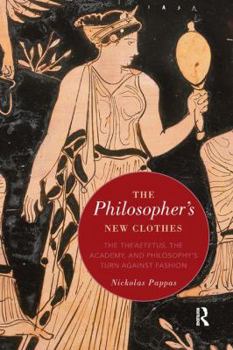The Philosopher's New Clothes: The Theaetetus, the Academy, and Philosophy's Turn against Fashion
Select Format
Select Condition 
Book Overview
This book takes a new approach to the question, "Is the philosopher to be seen as universal human being or as eccentric?". Through a reading of the Theaetetus, Pappas first considers how we identify philosophers - how do they appear, in particular how do they dress? The book moves to modern philosophical treatments of fashion, and of "anti-fashion". He argues that aspects of the fashion/anti-fashion debate apply to antiquity, indeed that nudity at the gymnasia was an anti-fashion. Thus anti-fashion provides a way of viewing ancient philosophy's orientation toward a social world in which, for all its true existence elsewhere, philosophy also has to live.
Format:Paperback
Language:English
ISBN:0815372396
ISBN13:9780815372394
Release Date:December 2017
Publisher:Routledge
Length:234 Pages
Weight:0.79 lbs.
Dimensions:0.5" x 6.1" x 9.2"
Customer Reviews
0 rating





